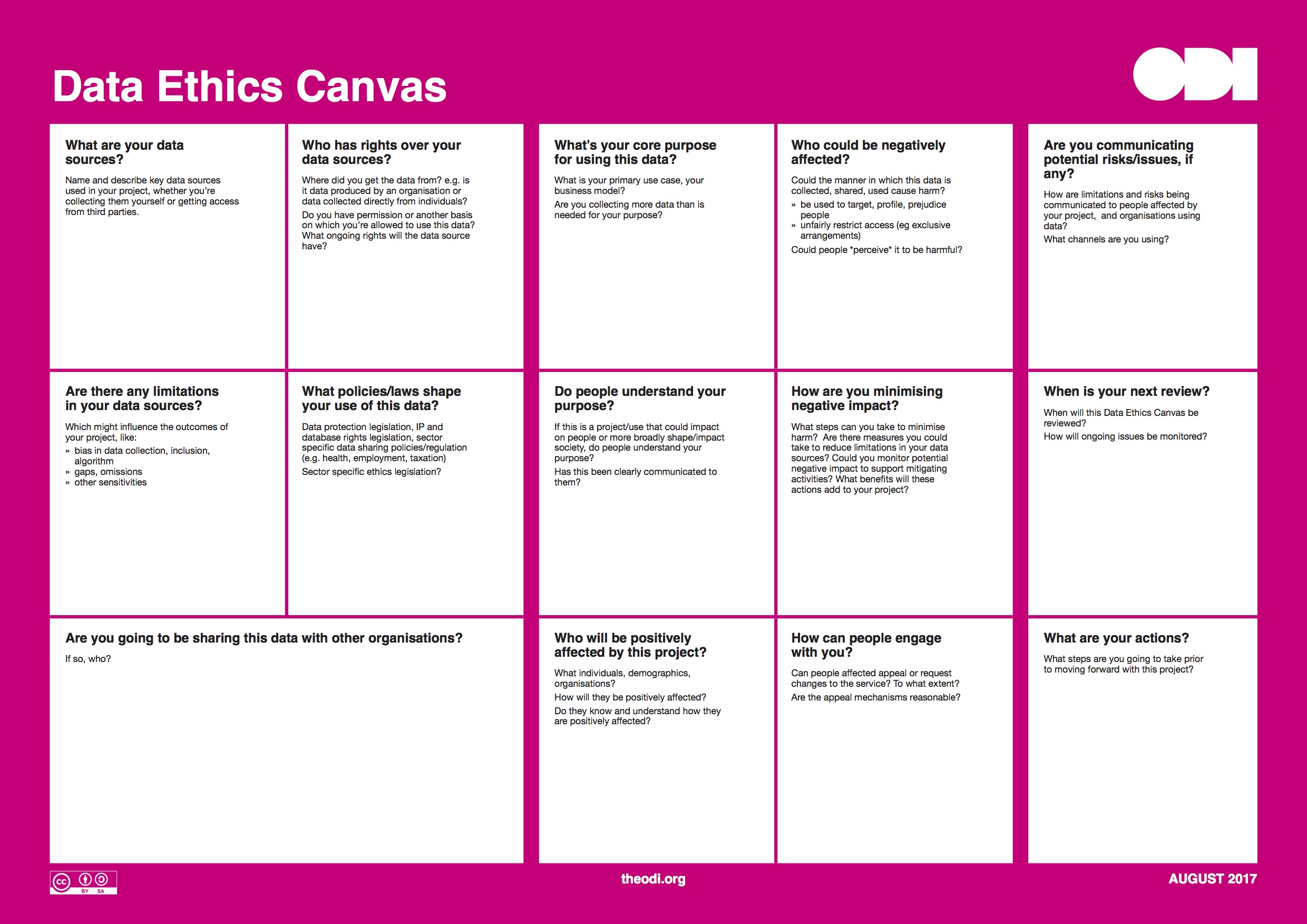To mark the launch of the ODI’s Data Ethics Canvas, Amanda Smith and Peter Wells share the thought behind it, why it is important and how they hope it will be used by organisations and sectors
Data is emerging as a vital and virtual form of infrastructure that we rely on. This creates the opportunity to build better societies but also the risk that we lose trust, not just in data or facts but also in businesses and governments.
One of the ways that we can address this is to improve data ethics.
The choices made about what data is collected and how it is used should not be unfair, discriminatory or deceptive. Our new paper and tool will help you learn how to do this.
Sectors and organisations are being called upon to develop their own data ethics principles, policies and processes. Increasingly, those collecting, sharing and using data are exploring the ethics of their practices and, in some cases, being forced to confront those ethics in the face of public criticism. Debates are accelerating on issues like the monetisation of personal data, bias in data sources and algorithms, and the consequences of under-representation in data.
For some time, the Open Data Institute has been working on measures to help organisations build trust in how they collect, use and share data, and to foster better use of data overall. Trust is an essential component of society. When trust breaks down, the public lose faith in the institutions that provide them with services, and organisations lose the ability to share data and collaborate in ways that could improve all our lives.
Read the full post here.
